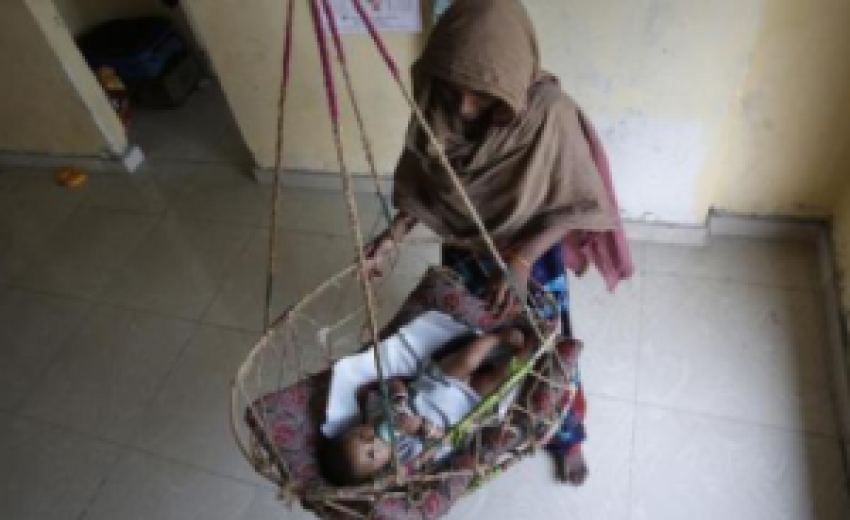 |
| A woman tends to a baby sleeping in a hanging cot in the living room of a flat in an illegal building located next to the site of a building which collapsed last week in Thane district on the outskirts of Mumbai April 10, 2013. REUTERS/Vivek Prakash |
NEW DELHI, April 17 (TrustLaw) - The United Nations is sending its special envoy to India to investigate the rising cases of violence against women, four months after the fatal gang rape of a student sparked public outrage over the treatment of females in the country.
Indian girls and women face a barrage of abuses in the largely patriarchal country. These include female foeticide, so-called "honour" killings, acid attacks, rape, trafficking and dowry murders.
But the savagery of a December 16 assault, where a 23-year-old woman was gang-raped on a moving bus by six attackers and tortured with an iron rod, shook the conscience of many Indians and stirred national debate about gender abuse.
Rashida Manjoo, U.N. Special Rapporteur on violence against women, will be on a 10-day visit from April 22 and is expected to travel to Rajasthan, Gujarat, Tamil Nadu and other areas to meet with local authorities and civil society groups. Her findings will be reported to the U.N. Human Rights Council.
"I intend to look into violence against women, its causes and consequences, in its broadest possible sense," said Manjoo, adding that the recent gang rape had provided an opportunity for India to further reflect on how to deal with the issue.
"My hope is that my dialogues with government and civil society representatives will contribute in some small way to the current discussions and efforts in the fight against violence in the country," she said in a statement.
There were 228,650 reported crimes committed against women in 2011, an increase of seven percent from the previous year, according to the National Crimes Records Bureau (NCRB).
After the Delhi gang rape, Prime Minister Manmohan Singh's government passed a tougher law to crack down on sex offences, but women's rights groups say gender laws in India often lack enforcement due to patriarchal attitudes.
Experts say a serious crackdown on cultural practices such as demanding dowry, more gender sensitisation, and empowering girls and women are just of the measures desperately needed to fight misogynistic views of females and curb gender abuse.
"Violence against women continues to be one of the most pervasive human rights violations globally, affecting every country in the world,” Manjoo said.
“I believe India is in a unique moment in history to address the issue of violence against women and to further advance women’s rights in the country."
